In this line of research, the objective is to address socio-political phenomena at the national and international levels and their relations with the public sphere. The line operates in four main axes.
The first axis approaches political theory from a historical and comparative perspective. It focuses on the political reflection elaborated in the Western World from Antiquity to our Age. It is understood that the study of the topics that deals with political science does not exempt but requires the knowledge of both the political thought produced by philosophers and more normative knowledge, and that developed from empirical research.
The second axis takes as an object of analysis the State and its institutions. The various dimensions of strict policy, such as voting and political behavior, democracy, governance, criminal justice, and public security are analyzed. It also includes the study of political participation and formation of public opinion within the sphere of the public sphere, as well as its effects on political institutions.
The third axis deals with the interrelationships between social groups and government policies. Thus, politics is not understood as restricted to the spaces of the state and formal institutions, but as a complex dynamic that articulates and is articulated by the different social forces in their multiple potentialities and determinations. In particular, the axis is formed by researches that reflects on the locus and role of organized civil society, subaltern groups, popular movements and identities that produce in the public arena new senses and discourses.
These actions and representations are, on the one hand, responses to state policies, and actions and, on the other hand, to form new agendas and spaces within the State itself. Social conflict and political struggle are thus elements that shape politics in a broad sense and public policies in particular. Finally, the fourth axis addresses global dynamics and international relations.
The increasing flows of trade and investment in the era of globalization have challenged the borders of the state and sovereignty, generating transformations in the functions of the state and its relationship with market players. Multinational companies and multilateral financial institutions emerge as powerful actors that seek to condition states’ actions and direct public policies. As a result, States tend to create new networks of global governance and to act in regional integration processes and international regimes. In this sense, new forms of international conflicts, migrations, and transnational social movements gain relevance in this line of research.
Linked Professors
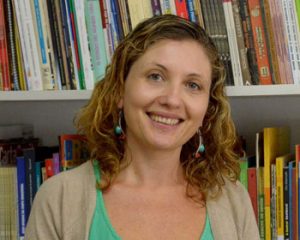
Ana Elisa Saggioro Garcia
anasaggioro@gmail.com
Ph.D. in International Relations from IRI / PUC-Rio and master’s in political science from the Free University of Berlin. Professor of the Department of History and International Relations at the Federal Rural University of Rio de Janeiro (UFRRJ). Coordinator of the Interdisciplinary Laboratory of International Relations Studies (LIERI / UFRRJ). Collaborating researcher at the Institute for Alternative Policies for the Southern Cone (PACS). She was a visiting researcher at York University, Canada. Has experience in the area of International Political Economy.
Institution: UFRRJ
Fields of interest: Critical Theory, Gramsci, hegemony, imperialism, multinational companies, and South-South relations.
Research Line 1: Institutions, Public Policies, and Political Theory
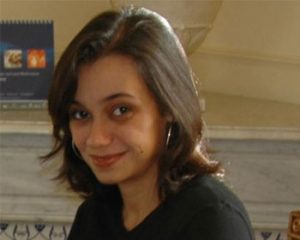
Flávia Braga Vieira
flaviabv@gmail.com
She holds a degree in Social Sciences (1998), a Masters in Sociology and Anthropology (2001) and a Ph.D. in Urban and Regional Planning (2008) from the Federal University of Rio de Janeiro (UFRJ). She is an Adjunct Professor of Sociology at the Federal Rural University of Rio de Janeiro (UFRRJ) where she teaches, develops research and extension projects and is a professor of the Graduate Program in Social Sciences. At the Institute of Urban and Regional Planning and Research at UFRJ, she coordinates the Extension/Specialization course Energy and Society in Contemporary Capitalism. She has experience in the areas of Social Sciences and Applied Social Sciences, working mainly on the following topics: globalization, social movements, State and public policies, development, and Latin America.
Institution: UFRRJ
Fields of interest: development, socio-environmental conflicts, territorial planning, public policies.
Research Line 1: Institutions, Public Policies, and Political Theory
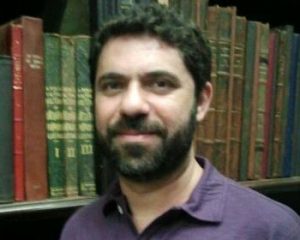
Marcelo da Costa Maciel
marcelocmaciel@bol.com.br
He holds a degree in Social Sciences from the Federal University of Rio de Janeiro (1992), a Master's degree in Sociology from the University of Rio de Janeiro (1994) and a Ph.D. in Political Science from the Rio de Janeiro University Research Institute (2003). Currently he is Adjunct Professor III of the Federal Rural University of Rio de Janeiro, having as main fields of interest: 1) Moral and Political Philosophy; 2) Ancient and Modern Skepticism; 3) Studies on Max Weber. (Text informed by the author)
Institution: UFRRJ
Fields of interest:1) Moral and Political Philosophy; 2) Ancient and Modern Skepticism; 3) Studies on Max Weber.
Research Line 1:Institutions, Public Policies, and Political Theory.
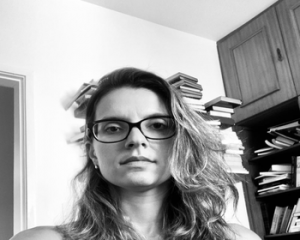
Mayra Goulart
mayragoulart@gmail.com
Professor of International Political and Political Theory of the Federal Rural University of Rio de Janeiro (UFRRJ), Coordinator of the Observatory of Portuguese Speaking Countries (OPLOP / UFF) and Visiting Researcher of CIES (ISCTE / IUL).
Institution: UFRJ
Fields of Interest:Latin America, Political Theory and Comparative Politics.
Research Line 1: Institutions, Public Policies and Political Theory.

Nalayne Mendonça Pinto
nalayne@bol.com.br
Ph.D. in Human Sciences (Sociology) from the Federal University of Rio de Janeiro (2006), Master's Degree in Sociology and Anthropology from the Federal University of Rio de Janeiro (2000). She is an Adjunct Professor of the Department of Social Sciences and the Graduate Program in Social Sciences of the Federal Rural University of Rio de Janeiro. She is a researcher in the area of Sociology, with emphasis in the following subjects: Legal Sociology, Criminal Sociology, Criminology, Sociology of Company and Organizations. Researcher at the Fluminense Observatory/UFRRJ and Associate Researcher at the Institute for Comparative Studies in Institutional Conflict Management – INeAC/INCT.
Institution: UFRRJ
Fields of interest: legal sociology, criminal sociology, public security, sociology of organizations.
Research Line 1: Institutions, Public Policies, and Political Theory

Nelson Rojas de Carvalho
nrojascarvalho@gmail.com
Associate Professor I of the Graduate Program in Social Sciences (PPGCS) at UFRRJ. Research coordinator, in agreement with the INCT – Observatório das Metrópoles – on geography of voting and governance in 15 Brazilian metropolitan regions. Bachelor’s in History from the University of Brasilia (1987), Master’s in Political Science (Political Science and Sociology) from IUPERJ (1996), Master of Comparative Politics from the London School of Economics and Political Science (2001) (Political Science and Sociology) by IUPERJ (2003). Postdoctoral fellow (2015/16) at the George Washington University Institute of Public Policy (GWIPP) under the supervision of Clarence Stone. He was a permanent professor of the Graduate Program in Political Science (PPGCP) at UFRJ. He has experience in Political Science, with emphasis on Electoral and Partisan System, Congress, Public Policy and Metropolitan Governance. He had his book “And at the Beginning were the Bases – Political Geography of the Vote and Legislative Behavior in Brazil”, awarded by ANPOCS. Guest columnist for Valor Econômico newspaper.
Institution: UFRRJ
Fields of interest: Political behavior, electoral systems, parties and legislative studies.
Research Line 1: Institutions, Public Policies and Political Theory.
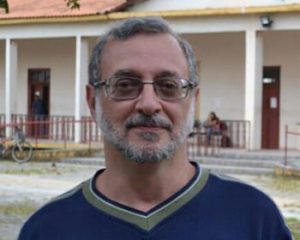
Vladimyr Lombardo Jorge
vljorge@hotmail.com.br
He holds a degree in Social Sciences from the Fluminense Federal University (1992), a Master's degree in Political Science (Political Science and Sociology) from the University of Rio de Janeiro (1995) and Ph.D. in Political Science (Political Science and Sociology) Research from Rio de Janeiro (2003). He is associate professor, level 1, of the Federal Rural University of Rio de Janeiro (UFRRJ) – teaching courses for undergraduate courses (Social Sciences, Economics, History and International Relations) and the Graduate Program in Social Sciences. He has experience in Political Science, working mainly in the following subjects: democracy, comparative political systems, public opinion and political communication. Currently, he is sub-coordinator of the project “Teaching Political Science in Basic Education”, linked to the Institutional Program of Initiatives for Teaching (PIBID) of the area of Social Sciences at UFRRJ.
Institution: UFRRJ
Fields of interest: Political behavior, political communication and State and Government.
Research Line 1:Institutions, Public Policies and Political Theory.
The research interests gathered in this line have as privileged focus the study of identity processes, based on comparative and/or relational analyzes, diagnoses, studies of sociability, and conflict inherent in social life.
The investigations start from the perception of the constitution of markers of difference: race, class, gender, and generation in contexts of production of inequality, as well as the strategies of insertion and mobility of social groups, of the processes of social change, considered in their different intellectual expressions, cultural, political, institutional and organizational.
Also studied are studies dedicated to the relations between society and nature, rural and urban, as well as processes of circulation and mobility, territorialization and ethnic belonging, which constitute networks of political participation, production, and knowledge. It is interesting to investigate, through the study of relations in zones of real or figurative frontiers, interfaces and meanings of experiences of exchanges and conflicts occurring in intermediate spaces, in the formation of new social and symbolic categories, as well as other phenomena related to interculturality. Our investigations are organized into three main axes, often interchangeable.
The first axis is devoted to the study of processes of production of inequality and difference. Ethnic-racial relations, gender studies, generation and sexuality, the emergence of new political subjects in relation to demands for recognition of the State and other social sectors, and the impact of these systems of difference in the production of knowledge are privileged.
The second axis deals with the phenomena of social and political organization and mobilization, whether in historical or contemporary contexts, urban or rural, as well as processes of mobility and migration. The themes of this axis are the impacts of public policies and development on indigenous and traditional peoples in their respective environments; the ways of inhabiting the city and the government of populations on the banks.
The third axis focuses on the production of social and political thought in Brazil, Latin America, Africa, and Asia, in contexts involving center-periphery relations, post-colonial relations, and global interactions. The analysis of this production takes place in the interface with processes and conflicts related to inequalities and social differences, expressing a diversity of political projects and of intellectual and cultural lineages/experiences.
Linked Professors
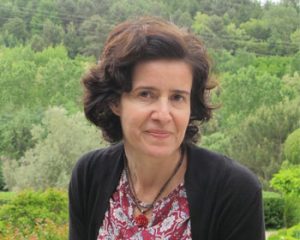
Annelise Caetano Fraga Fernandez
annelisecff@yahoo.com.br
She is an Adjunct Professor of the Department of Social Sciences and the Graduate Program in Social Sciences of UFRRJ. She has a master’s degree in Anthropology and Sociology and a Ph.D. in Sociology from the Federal University of Rio de Janeiro. Coordinates the Center for Studies in Environment, Territory and Agri-Food Systems (NEATS). Her main research themes are nature, space, and society, participation and peasantry. She is currently developing work related to territorial dynamics, environmental conflicts, participation in councils, socio-technical networks, and agro-food systems.
Institution: UFRRJ
Fields of interest: environment and society, family agriculture, participation, public policies.
Research Line 2: Sociabilities, Conflicts and Identity Processes.
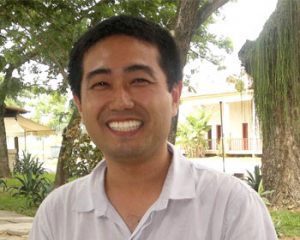
Edson Miagusko
mia.eds@gmail.com
Adjunct Professor of Sociology of the Graduate Program in Social Sciences and the Department of Social Sciences of the Federal Rural University of Rio de Janeiro (UFRRJ). He holds a Ph.D. in Sociology (2008), a Master's in Sociology (2001) and a bachelor’s degree in Social Sciences from the University of São Paulo (USP). He is a researcher at the Observatório Fluminense where he coordinates the research project “The Baixada Fluminense and the great urban projects: trajectories, sociabilities, and circuits in the peripheries” and the Disturbios/UERJ (Devices, Urban Plots, Orders, and Resistances). Has experience in the area of Urban Sociology working in the following subjects: cities, social movements and collective action, work and urban conflicts.
Institution: UFRRJ
Fields of interest: cities, social movements, job, and sociological theory
Research Line 2: Sociability, Conflict, and Identity Processes
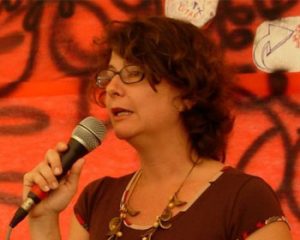
Elisa Guaraná de Castro
elisaguarana@gmail.com
She holds a degree in Social Sciences from the Federal University of Rio de Janeiro (1992), a Master's degree in Sociology and Anthropology from the Federal University of Rio de Janeiro (1995) and a Ph.D. in Social Anthropology from the National Museum of the Federal University of Rio de Janeiro (2005) having defended the thesis Between Rural and Urban – an ethnography of the rural youth category. Published in 2013 by the publisher Contra Capa with support from Faperj. She is currently an Associate Professor at the Federal Rural University of Rio de Janeiro and is the General Coordinator of Transverse Policies of the National Secretariat for Youth. She has experience in Sociology and Anthropology, working mainly on agrarian reform, youth, rural youth, public policies, social identity, and political identity.
Institution: UFRRJ
Fields of interest: agrarian reform, youth, rural youth, public policies, social identity and political identity.
Research Line 1: Institutions, Public Policies, and Political Theory.
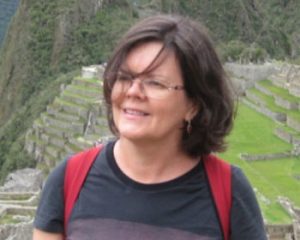
Izabel Missagia de Mattos
belmissagia@gmail.com
Ph.D. in Social Sciences (Area: Indigenous Societies) from the State University of Campinas (2002) and Master's degree from the Federal University of Minas Gerais (1996). She is currently Associate Professor I and researcher of the Graduate Program in Social Sciences of the Federal Rural University of Rio de Janeiro and develops, with assistance from the Foundation for Research Support of the State of Rio de Janeiro, investigations on memory and history of indigenous peoples in Minas Gerais. She has experience in the field of Anthropology, focusing mainly on the following subjects: historical anthropology, ethnology, Botocudos, religious missions, social memory, nationality formation, and cultural heritage.
Institution: UFRRJ
Fields of interest: cultural heritage, traditional knowledge, ethnology, indigenous history, and indigenism.
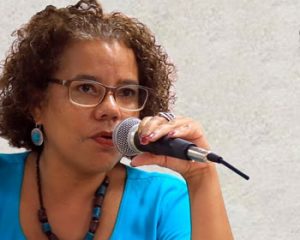
Luena Nascimento Nunes Pereira
luena.ufrrj@gmail.co
Adjunct Professor at Federal Rural University of Rio de Janeiro. She has a degree in Social Sciences from the Federal University of Rio de Janeiro (1995), Master’s (2000) and Ph.D. (2005) in Social Anthropology from the University of São Paulo, with the thesis “The Bakongo of Angola: Religion, Politics and Kinship in a Luanda”. She has done Post-Doctorate at CEBRAP/Brazilian Center for Analysis and Planning (2005-2008) and at King's College/London (2008, FAPESP scholarship). She was a PRODOC Fellow (CAPES) at PPGAS/Unicamp (2008-09). She works in the area of Anthropology with research in the following subjects: Angola, contemporary Africa, ethnic identity, nationalism, religious identity, racial relations, social markers of difference, African and Afro-Brazilian History and Culture teaching.
Institution: UFRRJ
Fields of interest: African Studies, Nation, Ethnicity, Race Relations.
Research Line 2: Sociabilities, Conflicts, and Identity Processes.
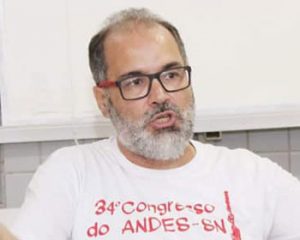
Marco Antonio Perruso
trogao@bol.com.br
Adjunct Professor of Sociology at Federal Rural University of Rio de Janeiro. Professor of the Permanent Board of the Graduate Program in Social Sciences of UFRRJ. He holds a bachelor's degree in Social Sciences from the Federal University of Rio de Janeiro (1993 and 1995, respectively) and a Master's and PhD in Sociology from UFRJ (1999 and 2008, respectively). He has experience in Sociology and Social Sciences, working mainly in the following subjects: Brazilian social thought, intellectuals, political culture, social movements, civil society, work, globalization and social theory.
Institution: UFRRJ
Fields of interest: Brazilian social thought, intellectuals, political culture, social movements, civil society, work, globalization and social theory
Research Line 2: Sociabilities, Conflicts, and Identity Processes.
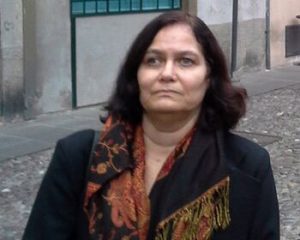
Miriam de Oliveira Santos
mirsantos@uol.com.br
Graduated in Social Sciences from the State University of Rio de Janeiro (1984), master’s in Political Science from the Federal University of Rio Grande do Sul (2000) and PhD in Social Anthropology from the Federal University of Rio de Janeiro (2004). From September 2006 until September 2007, he completed a postdoctoral internship at the CPDA of the Federal Rural University of Rio de Janeiro. She is currently an associate researcher at the Interdisciplinary Center for Migration Studies and an associate professor at the Multidisciplinary Institute of the Federal Rural University of Rio de Janeiro, linked to the Graduate Programs in Social Sciences and Geography at the same university. He has experience in the areas of Anthropology and Education, working mainly in the following subjects: immigration, identity, socialization, peasantry and gender.
Institution: UFRRJ
Fields of interest: migration, gender, peasantry and socialization.
Research Line 2: Sociabilities, Conflicts and Identity Processes.
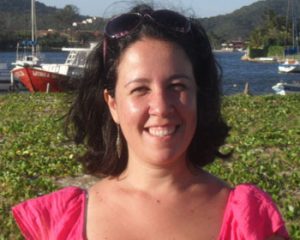
Moema Guedes
moguedes@yahoo.com.br
She holds a degree in Social Sciences from the Federal University of Rio de Janeiro (2001), a Master's Degree in Population Studies and Social Research from the National School of Statistical Sciences (2004) and a Ph.D. in Demography from the State University of Campinas (2009). She is currently Adjunct Professor of the Department of Social Sciences of the Federal Rural University of Rio de Janeiro (UFRRJ) and is a member of the Postgraduate Program in Social Sciences (PPGCS) of the same university. Has experience in the area of Sociology and Population Studies, working mainly on the following topics: gender, work, family and research methodology.
Institution: UFRRJ
Fields of interest: Gender, social inequalities, labor market, and family.
Research Line 2: Sociabilities, Conflicts and Identity Processes.
This line of research presents a field of debates about the production of social life in the articulation between individuals, social processes and cultural practices, guiding as a common issue a broad problematization around the construction of social classifications.
Reflections on the formation of explanatory and interpretive categories of life in society are contemplated and how they are the result of wide-ranging disputes between fields, agents, forces, discourses, and representations. This academic exercise of analysis of social processes takes place within the scope of this research line from the following major themes: artistic manifestations, patrimony, representations, power and culture; religion, morality and politics; gender, family and sexuality; power, territory and representation; trajectories, biographies, sufferings and human rights.
One of the thematic axes of this line deals with the constitution of subjects and the construction of the person, whether from the question of memory, gender and sexuality or family configurations and kinship relations. The reflections address the different sensitivities, narratives, trajectories, and biographies of individuals or groups, considering the displacements, bifurcations, and temporalities. This analysis can focus on the interface between nature and culture and from normative systems such as law and medicine.
The second axis of this line focuses on artistic manifestations and material culture, starting from the possibility of thinking specific heritage, collections, and objects – museums, cinema, art – as means of attribution of meanings that go beyond the consecrated forms of categorization of the social world. Appreciated from a technology of enchantment, things go through classifications – art/artifact, ethics/aesthetics, masculine/feminine, individual/collective, public/private – allowing to perceive processes of objectification of identities, social affiliations and everyday practices and contributing effectively to self-creation and identification and understanding of others.
The third and final axis of this research line deals with the question of religion based on its intrinsic articulation with different fields of social and subjective life, considering the analysis of religious transformations in institutional, individual and collective contexts. We are particularly interested in the relationship between religion and politics, religion and territoriality, religion and public space, religion and media, disputes of moralities, and controversies surrounding religion in the national debate. We also aim to follow the formation and changes of the Brazilian religious field, in conjunction with comparative studies of religion. Based on these themes and their cross-links, the productions of this line of research challenge boundaries between fields of study, based on a critique of the reification of categories, even the most classic, and fostering works that contribute to this research interest.
Linked Professors
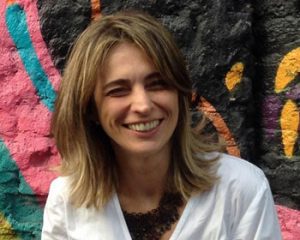
Alessandra de Andrade Rinaldi
mvale@centroin.com.br
Adjunct Professor in Social Anthropology – UFRRJ. She holds a degree in Social Sciences from the Federal University of Juiz de Fora (1994), a master’s degree in Anthropology from the Fluminense Federal University (1997), a Ph.D. in Collective Health from the State University of Rio de Janeiro (2004) and a Postdoctoral Degree in Social Anthropology PPGAS/MN-UFRJ. She develops research on gender, violence, family, and kinship. Since 2010 she has been researching adoptive filiation.
Institution: UFRRJ
Fields of interest: gender; violence; family and kinship
Research Line 3: Social Dynamics; Cultural Practices; Representations and Subjectivity
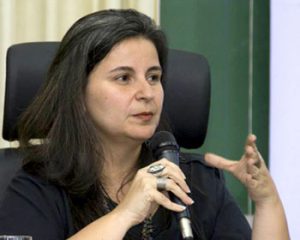
Carly Barboza Machado
machado.carly@gmail.com
Professor of Anthropology at the Federal Rural University of Rio de Janeiro (UFRRJ), develops research in the field that involves the themes of religion, media, politics and city. She works in the Post-Graduation Program in Social Sciences of UFRRJ. She holds a Ph.D. in Social Sciences from the State University of Rio de Janeiro (2006), a Psychology degree from the Federal University of Rio de Janeiro (1997) and a master’s degree in Community Psychosociology and Social Ecology from UFRJ (2000). In 2005 she held a doctorate abroad, at the University of Amsterdam, and in 2007 she developed post-doctoral activities at McMaster University in Canada. Coordinates, with Patricia Birman, the research group Disturbance/UERJ - Devices, urban plots, orders and resistances. She is a researcher at the Observatório Fluminense/UFRRJ.
Institution: UFRRJ
Fields of interest: Religion, media, city, and crime.
Research Line 3:Social Dynamics, Cultural Practices, Representations, and Subjectivity
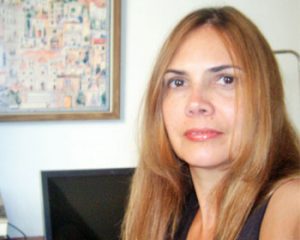
Marta Cioccari
marta.cioccari@gmail.com
Anthropologist and Journalist, graduated in Social Communication / Journalism from PUC-RS (1987), master’s in social Anthropology from UFRGS (2004) and Ph.D. in Social Anthropology from the National Museum-UFRJ (2010), with Ph.D. at École des Hautes Études in Social Sciences (EHESS) between 2007-2008. Currently, she is an Adjunct Professor of the Department of Social Sciences of the Federal Rural University of Rio de Janeiro (UFRRJ). From 1996 to 2006, she was a lecturer at the Unisinos Communication Sciences Center, where she held the position of executive coordinator for undergraduate courses. Between 2004 and 2005, she acted as a substitute teacher in the Department of Anthropology at UFRGS. Between 2010 and 2014, she was professor-researcher Prodoc-CAPES at PPGAS, National Museum, UFRJ. She coordinates, with José Sergio Leite Lopes, the “Núcleo de Antropologia do Trabalho” biographical and trajectory studies (NuAT), certified by CNPq, and is also a researcher associated with the “Núcleo de Antropologia da Politica” (NuAP), both at PPGAS/MN/UFRJ. She has consulted for the federal government and international organizations (IICA, FAO) related to the Right to Memory and Truth project. Between August and November 2014, she served as senior researcher at the UNDP National Commission on Truth (CNV) in Rio de Janeiro. She is also a researcher associated with the Memory of Social Movements Program (Memov), at the Brazilian College of Higher Studies at UFRJ.
Institution: UFRRJ
Fields of interest: anthropological theories, urban and rural working classes, popular culture, honor and reputation, workers' football, ethnography and intersubjectivity, narratives and writing, memoirs, biographies and trajectories, military regime and human rights.
Research Line 3: Social dynamics, cultural practices, representations and subjectivity.
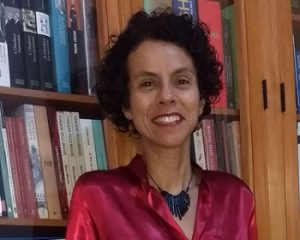
Naara Luna
naaraluna2015@gmail.com
She holds a degree in Social Sciences from the Federal University of Rio de Janeiro (1997), a graduate degree in Theology from the School of Theology at IECLB (1994), a Master's degree in Social Anthropology from the Federal University of Rio de Janeiro (2000) and a Ph.D. in Anthropology from the University Federal University of Rio de Janeiro (2004), where she completed her postdoctoral degree (2010). She is currently Associate Professor of Anthropology at the Federal Rural University of Rio de Janeiro and Professor of the Graduate Program in Social Sciences (PPGCS) at UFRRJ. She has experience in Anthropology with emphasis on Anthropology of Person, Anthropology of Kinship, Anthropology of Science and Medicine, and Anthropology of Religion, researching topics related to the following subjects: stem cells, new reproductive technologies, person, embryo status human relationship, abortion, kinship, the relationship between conceptions of nature and culture, and the interface of religion with ethical issues.
Institution: UFRRJ
Fields of interest: person and corporality, nature and culture, kinship, religion, and health.
Research Line 3: Social Dynamics, Cultural Practices, Representations and Subjectivity.
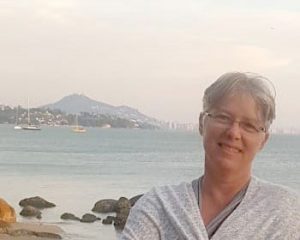
Patricia Reinheimer
patriciareinheimer@yahoo.com.br
Professor of Social Anthropology of the Social Sciences course at UFRRJ, I graduated in Fine Arts, with master's and doctorate in Social Anthropology by the National Museum. I have devoted myself to investigating the social processes behind situated objects of art. In the master's degree I investigated an intervention project of the Museum of Contemporary Art of Niterói and the implications for this project in the social identities of the participants. In the doctorate, I investigated the axiological transformations that were formed from certain Brazilian artistic movements. I have worked with handicraft objects produced in workshops held in the institutions that replace the Psychiatric Reform, and I am currently developing a project to organize collections, to reconstruct the trajectories of the original accumulators, and to investigate the role of things collected in the conformation of subjectivities and collectivities through lifestyles and production and cultural consumption. In this project, the collection (a collection of collections) has been organized for delivery to a custody and preservation institution, a process that has also been the object of reflection.
Institution: UFRRJ
Fields of interest: artistic manifestations, identity, representation and nation.
Research Line 3: Social Dynamics, Cultural Practices, Representations and Subjectivity.
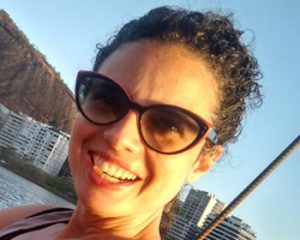
Sabrina Parracho Sant’Anna
saparracho@gmail.com
She holds a degree in Social Sciences from the Federal University of Rio de Janeiro (2001), a master's degree in Sociology and Anthropology from the Federal University of Rio de Janeiro (2004) and a Ph.D. in Sociology and Anthropology from the Federal University of Rio de Janeiro (2008). She is currently an associate researcher at the Federal University of Rio de Janeiro and an adjunct professor at the Federal Rural University of Rio de Janeiro. Has experience in the area of Sociology, with emphasis on sociology of culture.
Institution: UFRRJ
Fields of interest: art, museums, City, urban interventions, and social change.
Research Line 3: Social Dynamics, Cultural Practices, Representations and Subjectivity

Sílvia Regina Alves Fernandes
fernandes.silv@gmail.com
Professor of the PPGCS – Graduate Program of UFRRJ and the PPGSP – Postgraduate Program in Sociology and Politics, UENF, held a postdoctoral by CAPES at the Center for Latin American Studies and Departament of Religion, University of Florida (Gainesville) 2013 -2014; Ph.D. in Social Sciences from the State University of Rio de Janeiro (2004) and Master of Social Sciences from the State University of Rio de Janeiro (1999). Has experience in the area of Sociology, with emphasis on Sociology of Religion and Urban Sociology. She was research coordinator at CERIS – Center for Religious Statistics and Social Research and most recently advised the Pew Forum Religion and Public Life – Survey Religion in Brazil 2013-2014. She is the leader of the CNPq research group: DT-CRELIG – Territorial Dynamics, Culture and Religion and member of the research group Studies of Christianity. Among his publications, the following stand out: Religious youth and Catholicism – choices, challenges and subjectivities. Quartet/Faperj, 2010; Challenges of Catholicism in the city – research in Brazilian metropolitan regions. CERIS, RJ; Paulus, SP, 2002. Current research topics: Catholicism; Pentecostalism; youth; institutions; Catholic Church, transnational studies, migration and religion.
Institution: UFRRJ
Fields of interest:Sociology of religion; religion and globalization; youths; Religious institutions.
Research Line 3: Social Dynamics, Cultural Practices, Representations and Subjectivity.




